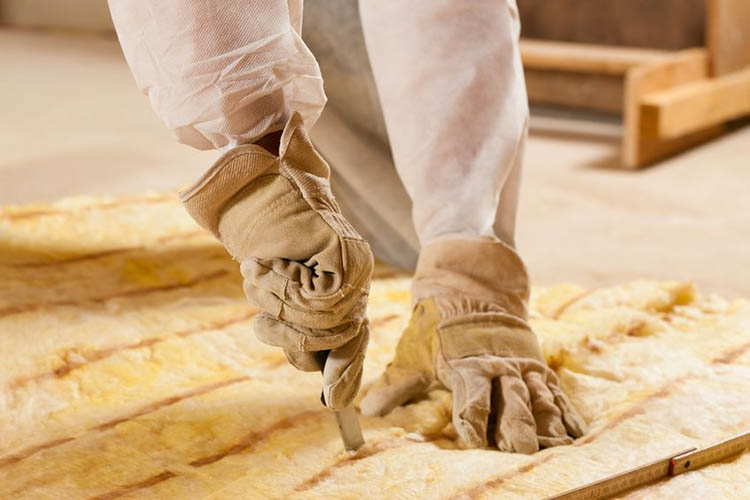Program making a difference one home at a time

For Linda Pasco, the renovations made on her home made a noticeable difference in comfort. Her home has been in her husband’s family for generations, and she is confident it has never felt warmer or been so efficient.
Pasco’s home was one of 70 served under what was once the OPPD Smart Steps program, and is now called the Energy Efficiency Assistance Program. The program began as a pilot program in the fall of 2019 to test new program requirements and qualifications and a streamlined application process.
The program is designed for low-income customers across the OPPD service territory. It provides assistance to help cover the costs of qualifying energy-efficiency projects that reduce energy usage and save customers money on their utility bills.
Pasco said her family’s utility bill has gone down by $50 to $60 a month, and they use less propane. The living room, especially, is now much more comfortable thanks to a new door that replaced an old, drafty one.
“Our refrigerator was as old as the hills and they replaced that,” Pasco said. “I’m thrilled with the work they did. Now we can’t even tell when the wind is blowing. We couldn’t have done this on our own. We really appreciate the program.”
About the energy efficiency program
“The new program’s biggest goal is to make people’s living conditions better and save money on their utility bills,” said Britton Gabel, senior product specialist at OPPD.
The program partners with Habitat for Humanity of Omaha and Southeast Nebraska Community Action Partnership (SENCA) as program contractors. The program offers a free energy efficiency kit, a comprehensive in-home energy audit and up to $2,000 in qualified upgrades.
The contractors are the primary contact for those applying for the program. They will also provide the energy audits and implement the qualified improvement projects, Gabel said.
To be eligible, a customer must have a household income below 200% of the federal poverty level. They must own their home, and be an OPPD customer.
“The pilot was successful,” Gabel said. “We were able to help 70 homeowners during a pandemic compared to 38 homeowners in the previous two years combined. Our goal is to update 100 homes a year.”
Some program highlights:
- The new program allows for $2,000 in upgrades, which is double the amount of funding allowed under the previous program.
- Customers’ energy-efficiency upgrade projects depend on the needs determined by their home energy audits.
- On average, participating homeowners saw energy savings of 41%.
- The average annual projected energy savings is $234 per home.
Impacting more than homes
Gabel said early in the pilot, a carbon dioxide (CO2) leak was discovered in one customer’s attic. The home had no CO2 detectors. Its insulation was so inefficient that the home owner was never aware of the leak and never became ill.
“Had the home been more efficient, this would have been one of those tragic stories you hear in the news,” Gabel said. “We were able to repair the leak to make the home safe, and improve energy efficiency, as well. It was a win-win.”
For Tammy Clark, a homeowner in northwest Omaha, the results of work done last summer have made a huge difference. She replaced a refrigerator, installed attic insulation, and fixed a leak in her bathroom sink.
“They did a really good job,” she said. “Our area had a really cold winter. But not for us. I no longer needed my blanket when sitting in the living room and that has never been the case in the seven years I’ve lived here. It has never felt so comfortable.”
Clark said she hopes the program keeps going and can help more homeowners like herself reduce their energy usage and save money on their monthly utility bills.
For more information, visit oppd.com/EEAP.

Jason Kuiper joined OPPD as a communications specialist in 2015. He is a former staff writer and reporter at the Omaha World-Herald, where he covered a wide range of topics but spent the majority of his career covering crime. He is a graduate of the University of Nebraska at Omaha and has also appeared in several true crime documentary shows. In his free time he enjoys cooking, spending time with his wife and three children, and reading crime novels.
View all posts by Jason Kuiper >







